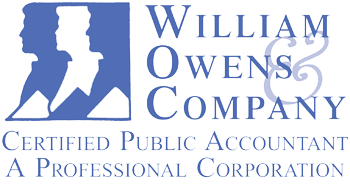
Great tax management is keeping and receiving all the money you’re entitled to while meeting your legal obligations. Here are some common mistakes you don’t want to make.
Many times, people don’t even realize all the money they’re leaving on the table when they file their taxes as well as not being aware taking actions that are required by the IRS. Of course, this is totally understandable with tax laws being so complex and frequently changing from year to year. Sure, there are data entry errors that delay the filing but preventing these mistakes below will help you put more money into your coffers.
Not Writing Off Tax Expenses
When expenses for tax preparers and financial advisors exceed two percent of your AGI (adjusted gross income), you can write off your costs of fees. So let’s say you have an adjusted gross income $200,000 and you have financial advice fees of $7k, you can write off $3k of that.
Paying More Taxes On Retirement Investments Than You Have To
For those seventy and over, a common mistake is that when taking out the mandatory funds from the retirement account, sometimes people already had optioned to have taxes taken out upon withdrawal. Then when it comes time to do taxes, they pay taxes it on again not realizing that taxes had already been paid on the money withdrawn. Sometimes the Internal Revenue Service catches the mistake but sometimes they don’t. So don’t depend on them to correct it for you.
Not Taking Advantage of Home Office Deductions
If you’re an IT manager by day and a wedding photographer on the weekends, it’s easy to not think about how a second job can be a tax advantage to you. But maintaining your receipts and records as well thinking of your home office as your legitimate home office can be incredibly helpful—especially if you live in a market where property values are high and space is small.
And if you can’t keep track of everything down to the penny, the IRS allows you to take $5 per square foot of business only space in your house—a deduction up to $1500 with no paper trail necessary.
Failing To Catch An Overpayment When Changing Jobs
If you get a new job making more money during the tax year, the new job is going to tax you based on your yearly salary which could cause the employer to take out a higher percent of social security taxes. But if all together in the year you made less than what your new salary annual salary will be, you could have possibly overpaid by almost a thousand dollars. A CPA or Enrolled Agent will usually catch this where filers doing their own taxes may not.
There are also lots of breaks for those searching for jobs. You can write off non-reimbursed expenses for travel for a job interview and the paid premium version of Linkedin for example.
Tax Overpayment on The Sale of Investments
Take the price you paid for an investment out of what you sold the investment for and you have the amount of what you owe taxes on. However, it’s not always that simple and this is where people miscalculate and overpay on the sale. Factors such as broker commissions, stocks that split, dividends that were reinvested and so on all impact the amount you owe. Since financial companies track the base cost of these, most people forget to include the costs they made along they way in the journey of that investment. Consequently, you’re paying more taxes on capital gains than you should.
For example, if you originally bought the stock for five thousand dollars and you reinvested a few times paying fees and commissions each time you reinvested and then sold the investment for ten thousand dollars, you’d might have spent $5,550 dollars instead of $5,000. In this case you would have overstated your income by gains of $5,000 when really it was only a gain of $4,450.
Neglecting To Claim Retirement Contributions
Retirement brokers don’t send out contribution confirmations until after taxes are done. So prior to filing taxes, check with your broker to see how much you contributed during the tax year. Not doing so can generally cause you to miss out on tax breaks. Even if your contributions were not eligible for a deduction, you’ll still want to fill out Form 8606 so you don’t have to pay taxes on a part of your retirement withdrawals when the time comes.
Not Making The Distinction Between Higher Education Deductions & Credits
You’re allowed to deduct up to four thousand dollars in higher ed costs such as tuition and fees. There is another option, a twenty-five hundred dollar tax credit on tuition and fees. The $4k deduction seems like the obvious choice. But it’s a deduction which only reduces the amount of taxes you owe. The $2500 is a credit which increases the amount of your refund (or lessens the amount you owe).
Forgetting About Digital Receipts
Not having an organized system for digital receipts can cause you to overlook eligible deductions for either business expenses or charitable contributions. You should at least have a folder set up in your email for receipts emailed to you so you can file these away. Ideally, you’d break these up by year and type such as Charitable Contributions 2014 and Business Expenses 2015 making it easier on you at tax time. Also, some sites don’t email you a receipt and only give you a confirmation page when you’ve completed the transaction. You can use an app like Evernote which will save the page as a note that you can use as a receipt. In fact, you can use an app like this to save all your receipts and give them tags like “Business Name, Travel Expenses, 2014” so you can track and view them easily.
